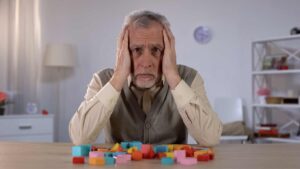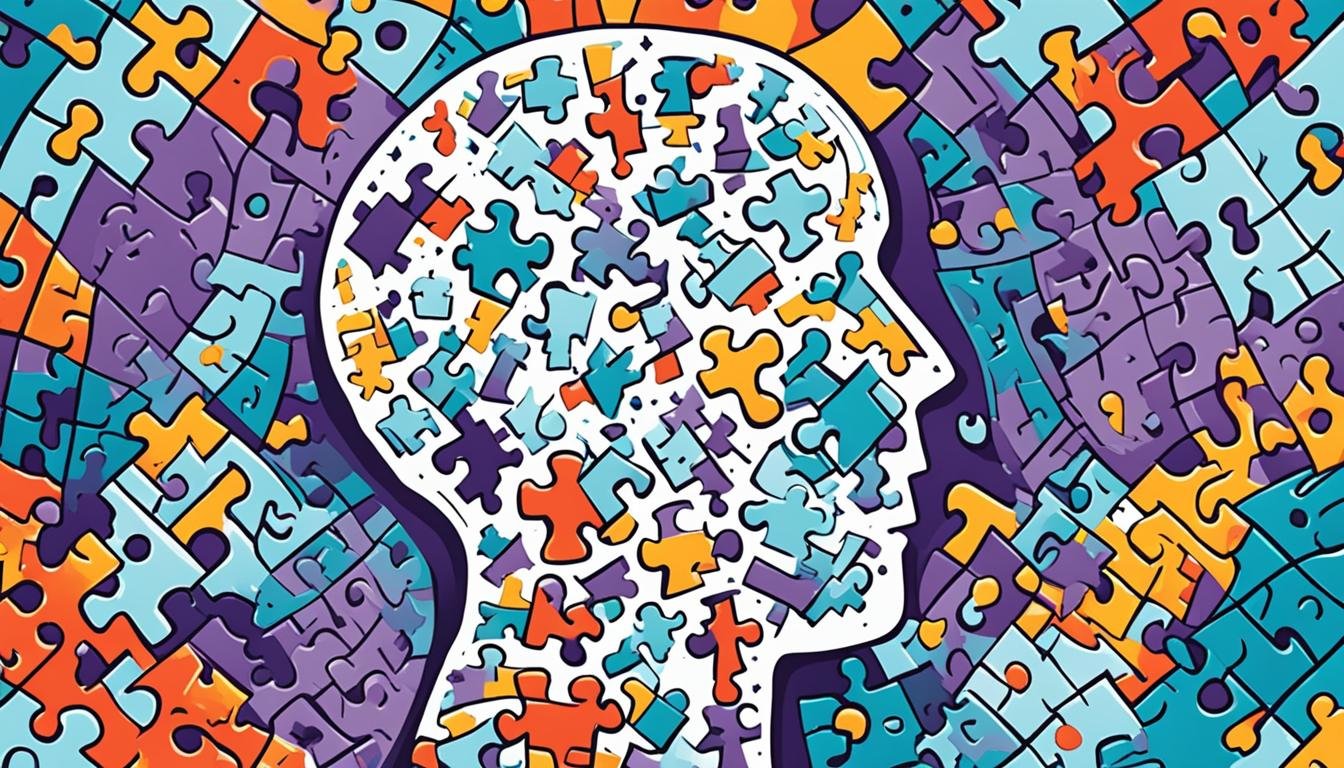If you have ever walked into a room and forgotten why or watched a loved one slowly forget the people they love, those moments are common and can feel scary.
They make us wonder: what really goes on inside our brain?
Alzheimer’s and dementia affect millions worldwide, yet we still don’t fully understand them. There are symptoms, science, and even hope, but the mystery remains.
In this blog, we will explore the facts, research, warning signs, and ongoing search for answers about Alzheimer and dementia. Let’s break down the basics in a way that truly makes sense.
Table of Contents
ToggleWhat Are Alzheimer’s and Dementia? Basics
Understanding Alzheimer’s and dementia starts with learning what they are and what they’re not.
Alzheimer’s and Dementia: Definition and Core Differences
Dementia is not a specific disease. It’s a general term for memory loss and thinking problems that interfere with daily life. Alzheimer’s disease is the most common type of dementia.
Key Differences:
- Dementia is a group of symptoms; Alzheimer’s is a disease.
- Alzheimer’s causes 60-80% of dementia cases.
- Dementia can be reversible (rarely); Alzheimer’s is not.
Common Misconceptions:
- Not all memory loss is dementia.
- Only older adults get it? Not true. Younger people can have early-onset Alzheimer and dementia.
Types of Dementia
Not all dementia is the same.
Here are the main types:
| Type | Description | Prevalence (2024) |
|---|---|---|
| Alzheimer’s Disease | Memory loss, confusion, slow decline | 6.9 million Americans |
| Vascular Dementia | Caused by strokes, affects thinking | 15-20% of cases |
| Lewy Body Dementia | Movement problems, hallucinations | 1.4 million people |
| Frontotemporal Dementia | Behavior & language changes | 50,000-60,000 cases |
| Mixed Dementia | Combination of types | Common in older adults |
These stats come from the 2024 Alzheimer’s Association.
What Causes Alzheimer’s and Dementia?
Many questions remain. But science has found some clues.
The Role of Brain Plaques and Tangles
Two key troublemakers in Alzheimer’s and dementia are:
- Amyloid-beta plaques: These are sticky clumps that build up between nerve cells.
- Tau tangles: Twisted fibers that form inside brain cells.
These block communication between brain cells and kill them over time. This is one way how Alzheimer affects the brain.
Genetics and Family History
Some people carry genes that raise their risk.
- APOE-e4 gene: If you have this, you’re more likely to get Alzheimer’s.
- Early-onset Alzheimer’s: Runs in families; can appear before age 65.
- Risk increases if you have multiple gene variants.
Read → Why Do Elders Suffer From Alzheimer’s?
Environmental and Lifestyle Triggers
Genes aren’t everything. Your choices matter, too.
- Head injuries: Like concussions, can raise risk.
- Heart health: Poor heart health affects brain health.
- Cognitive reserve: People with more education and social activity may delay symptoms.
According to 2024 research by NIH and Lancet, 40% of dementia cases are linked to preventable factors.
Read → What Causes Dementia?
Early Signs and Symptoms of Alzheimer’s and Dementia
Catching signs early gives a better chance at care and planning.
Memory Loss is Just the Beginning
It’s not just forgetting keys. Look for:
- Trouble finding words
- Confusion about time or place
- Mood swings or personality shifts
- Poor judgment or decision-making
These are some early signs of dementia you shouldn’t ignore.
The Progression: From MCI to Advanced Stages
It usually starts with MCI (Mild Cognitive Impairment), then gets worse.
| Stage | Description |
| MCI | Slight memory trouble, still independent |
| Early Stage | Trouble with tasks, misplacing things |
| Middle Stage | Needs help with daily tasks |
| Late Stage | Full-time care, severe memory loss |
On average, people live 4 to 8 years after diagnosis. Some live up to 20.

How Doctors Diagnose Alzheimer’s and Dementia?
Cognitive and Neuropsychological Testing
Doctors check memory, attention, language, and problem-solving. Common tests:
- MMSE (Mini-Mental State Exam)
- MoCA (Montreal Cognitive Assessment)
They also ask family members and check daily function.
Brain Imaging and Biomarkers
Images help spot changes in the brain.
- MRI and PET scans: Show brain shrinkage and plaque buildup.
- New blood tests: Can detect markers even before symptoms show.
ADNI (Alzheimer’s Disease Neuroimaging Initiative) supports this with ongoing studies.
Why Alzheimer’s and Dementia Still Puzzle Scientists?
Even with years of study, some questions remain.
The Amyloid Hypothesis Controversy
Many drugs aim to reduce plaques, but results are mixed.
- Some patients improve slightly.
- Others show no change.
- Side effects are a concern.
This raises doubts about whether plaques are the real cause.
Why Some People Don’t Develop Symptoms Despite Brain Changes?
Some people have brain plaques but no symptoms.
- Scientists call this brain resilience.
- These people, known as “super agers,” might have protective factors.
The Gender Disparity
Women are more likely to get Alzheimer and dementia.
- 2 out of 3 Alzheimer’s patients are women (Alzheimer’s Association, 2024).
- Possible reasons: hormone changes, longer life span, caregiving stress
Treatments and Ongoing Research for Alzheimer’s and Dementia
There is no cure yet. But there is hope.
FDA-Approved Medications
Drugs help manage symptoms, not stop the disease.
- Donepezil: For all stages
- Memantine: For moderate to severe stages
- Lecanemab: New drug targeting plaques
Each has pros and cons. Results vary.
Alternative and Supportive Therapies
Other therapies make life easier:
- Cognitive therapy: Brain exercises
- Music therapy: Helps calm and connect
- Mediterranean diet: May slow decline
These can support quality of life.
Breakthroughs on the Horizon
Ongoing research looks promising:
- CRISPR gene editing aims to fix faulty genes.
- Antibody treatments attack plaques.
- AI tools help doctors detect early signs.
Check AlzForum or NIA for updates on clinical trials.
Read → Treatments For Dementia
Global Impact of Alzheimer’s and Dementia
It’s not just a personal issue. It’s a global one.
Rising Numbers Worldwide
- 55 million people live with dementia today.
- That number could reach 139 million by 2050 (WHO).
The need for action is urgent.
Economic Burden and Health Policy Challenges
Alzheimer’s and dementia cost the world over $1.3 trillion in 2023.
- Health systems are strained.
- Families face financial pressure.
- Ethical questions about long-term care are rising.
Governments must act fast.
Dr. Chandril Chugh’s Perspective: What You Should Know Now
If you or someone you love is showing signs of Alzheimer’s and dementia, don’t wait. Early diagnosis makes a big difference.
Dr. Chandril Chugh is a US-trained, board-certified neurologist. He helps patients understand their brains and protect their futures.
You can book a consultation to get expert answers, tests, and care plans.

This article is medically reviewed by Dr. Chandril Chugh, Board-Certified Neurologist, providing expert insights and reliable health information.
→ Book a consultation to discover which remedies suit your needs best.
About Author | Instagram | YouTube | Linkedin
Related Blog Posts
Is Your Diet Cola Making You Dumb?
April 10, 2025
7 Tips to Manage Alzheimer’s and Parkinson’s
July 31, 2024
How to deal with dementia patients
April 10, 2024




